When you think of Paris, you might picture croissants, the Eiffel Tower, or quiet cafés by the Seine. But under the surface, there’s another Paris-one that beats to a different drum. It’s not in the tourist brochures. It’s not on the guided walking tours. It’s in the dimly lit basement of a 19th-century building in the 11th arrondissement, where the walls hum with Andean flutes, the floor shakes with Afro-Latin percussion, and strangers become family by midnight. That’s Pachamama Paris.
What Pachamama Paris Really Is
Pachamama Paris isn’t just a nightclub. It’s a living ritual. The name comes from the Andean earth mother, Pachamama, a symbol of fertility, abundance, and connection to nature. This isn’t a theme. It’s the heartbeat. Every Thursday to Sunday, the space transforms. No DJs in hoodies spinning the same four-on-the-floor beats you hear everywhere else. Instead, you’ll find live musicians from Bolivia, Senegal, Brazil, and beyond. A cajón drummer from Lima might lock eyes with a djembe player from Dakar while a pan flute melody floats over a deep bassline that feels like it’s coming from the earth itself.
The lighting is low, warm, almost candlelit. Murals of Andean mountains and African baobab trees cover the walls. People dance barefoot on wooden floors worn smooth by years of movement. You won’t find VIP sections or bottle service here. There’s no dress code except one: come as you are. A grandmother in a wool poncho might be dancing next to a student in ripped jeans. No one cares. They’re all there for the same thing-to feel something real.
How It Started
Pachamama opened in 2018, founded by a group of musicians and activists who’d spent years traveling through South America and West Africa. They’d seen how music brought people together-not as consumers, but as participants. Back in Paris, they couldn’t find a place that honored that energy. So they rented a derelict warehouse in Ménilmontant, fixed up the leaks, installed second-hand sound systems, and started hosting weekly gatherings.
The first night, 17 people showed up. A year later, it was 300. By 2023, they were turning people away at the door. The secret? No advertising. No Instagram influencers. Just word of mouth, passed from one soul to another. A French teacher who discovered it on a trip to Bolivia told her students. A Brazilian dancer who moved to Paris brought her whole crew. A Moroccan poet started reading under the stars on Friday nights. Slowly, it became a movement.
The Music That Moves You
The playlist at Pachamama isn’t curated by an algorithm. It’s curated by feeling. One night, you might hear huayno rhythms from the Andes mixed with deep house beats. Another, it’s mbalax from Senegal layered with live kora harp. There’s no genre label that fits. It’s called global soul by those who know.
Regular performers include:
- La Llorona Collective-a trio of women from Bolivia and Peru who blend traditional songs with electronic textures
- Djembe & The Moon-a Senegalese ensemble that plays until sunrise, using drums made from goat skin and hollowed-out acacia wood
- Amazone Sound-a Paris-based collective that fuses Amazonian chants with analog synths
There’s no set schedule. No printed flyers. The lineup changes weekly. You have to show up to find out what’s happening. That’s part of the magic.
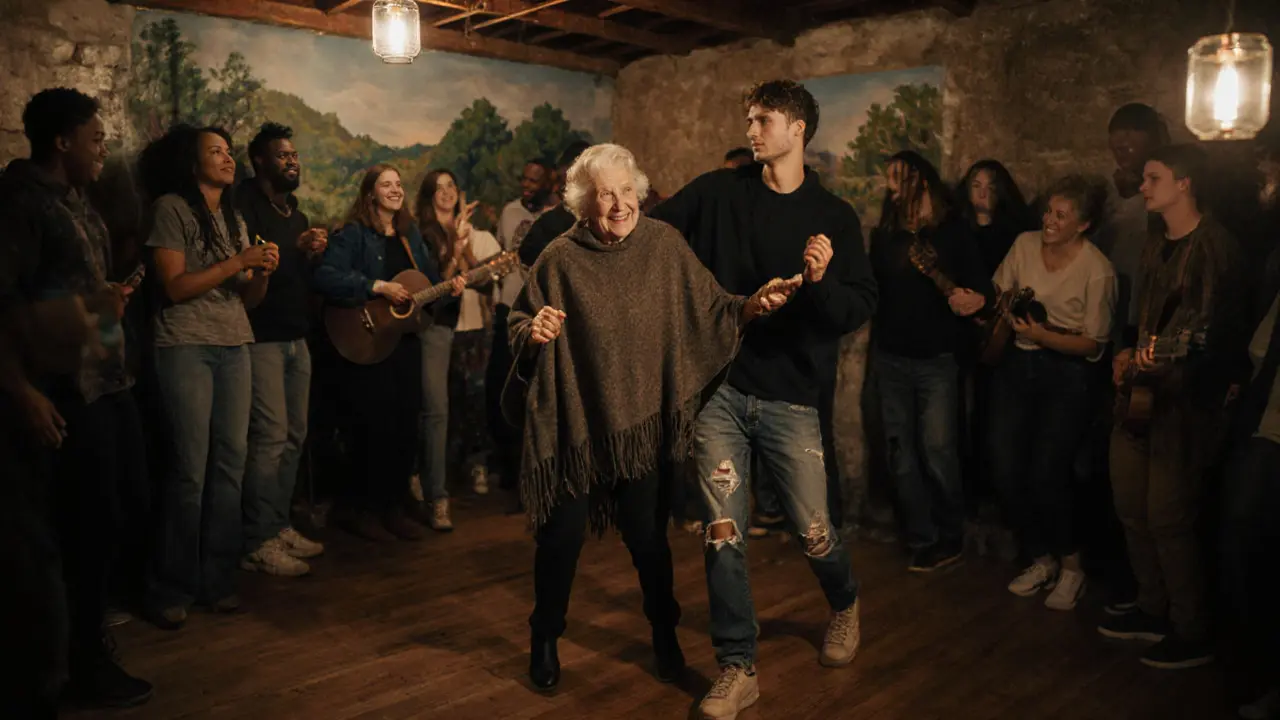
More Than Music
Pachamama isn’t just about sound. It’s about presence. On Saturdays, they host circle talks-open mic sessions where people share stories, poems, or questions about culture, identity, or healing. One woman from Algeria spoke about losing her mother and how Andean rituals helped her grieve. A young man from Mali played his grandfather’s flute for the first time outside of his village. No one clapped. They just listened. Then someone brought out a pot of herbal tea, and everyone shared a cup.
They also run a small food stall called La Tierra, serving simple, organic meals: quinoa stew with roasted root vegetables, plantain empanadas, and cacao tea sweetened with honey from local hives. No alcohol. No caffeine. Just nourishment. The drinks are herbal infusions-yerba mate, rooibos, hibiscus. The vibe is calm, grounding. It’s the opposite of the high-energy, overstimulated clubs elsewhere in Paris.
Who Comes Here?
You’ll find artists, teachers, retirees, refugees, students, nurses, and travelers. No one is there to be seen. No one is taking photos for social media. The rules are simple: no phones on the dance floor. No cameras. No judgment. You leave your screen at the door and enter a space where your body remembers what your mind forgot: how to move without an audience.
It’s not for everyone. If you need a loud, flashy, Instagrammable night out, you’ll walk out confused. But if you’ve ever felt tired of the same old nightlife-where everyone is looking at their phones instead of each other-this place will feel like coming home.
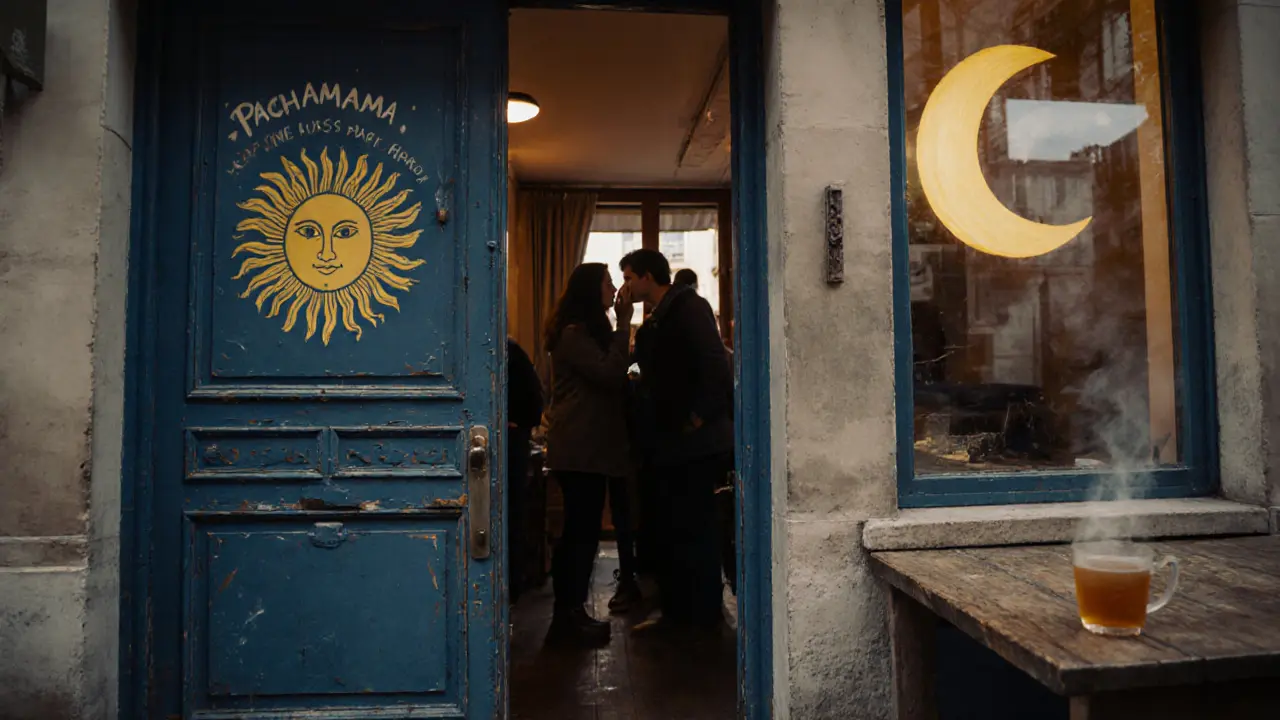
When to Go and What to Expect
Pachamama is open Thursday to Sunday, from 8 PM to 2 AM. Doors open at 8. Arrive early if you want a good spot. The space holds about 150 people, and it fills up fast. Entry is 12 euros. Cash only. There’s no online ticketing. No reservations. Just show up.
The address is 47 Rue de Ménilmontant, 75011 Paris. Look for the faded blue door with a painted sun and moon. No sign. No neon. Just that. If you’re unsure, ask someone on the street. Someone will point you there. That’s how it’s always been.
Bring a light jacket. The basement stays cool. Bring an open mind. And if you feel like dancing, don’t wait for the beat to drop. Just start moving. Someone will join you. They always do.
Why It Matters
In a world where nightlife is increasingly corporate, algorithm-driven, and homogenized, Pachamama Paris is a quiet rebellion. It doesn’t need to be famous. It doesn’t want to be on a list of ‘top 10 clubs.’ It exists because a group of people believed that music, community, and earth-based traditions still matter.
It’s proof that Paris still has spaces where connection is louder than noise. Where culture isn’t packaged and sold-it’s shared. Where you don’t just hear the rhythm. You become part of it.
Is Pachamama Paris open every night?
No, Pachamama Paris is open only Thursday through Sunday, from 8 PM to 2 AM. It’s closed Monday through Wednesday. The lineup changes weekly, so there’s no fixed schedule-each night is different.
Do I need to book tickets in advance?
No, there’s no online booking or reservations. Entry is first come, first served. Cash only-12 euros at the door. It’s best to arrive by 8:30 PM if you want to get inside without waiting.
Is there alcohol at Pachamama Paris?
No, Pachamama doesn’t serve alcohol. The focus is on natural energy and connection. They offer herbal teas like yerba mate, rooibos, and hibiscus, along with organic food from their on-site stall, La Tierra.
Can I take photos or use my phone inside?
Phones are not allowed on the dance floor. You can use them in the entrance area or outside, but the space is intentionally phone-free to encourage presence and real connection. Cameras are discouraged-this isn’t a place for content creation.
Is Pachamama Paris suitable for beginners in world music?
Absolutely. You don’t need to know anything about Andean flutes or Senegalese drumming to enjoy it. The music is felt more than analyzed. People come with no background and leave with a new rhythm in their bones. It’s designed to be accessible, not exclusive.
What should I wear to Pachamama Paris?
Wear whatever feels comfortable. There’s no dress code. Many people dance barefoot, so loose, breathable clothing works best. Layers are good-the basement can get cool. Comfort matters more than style here.

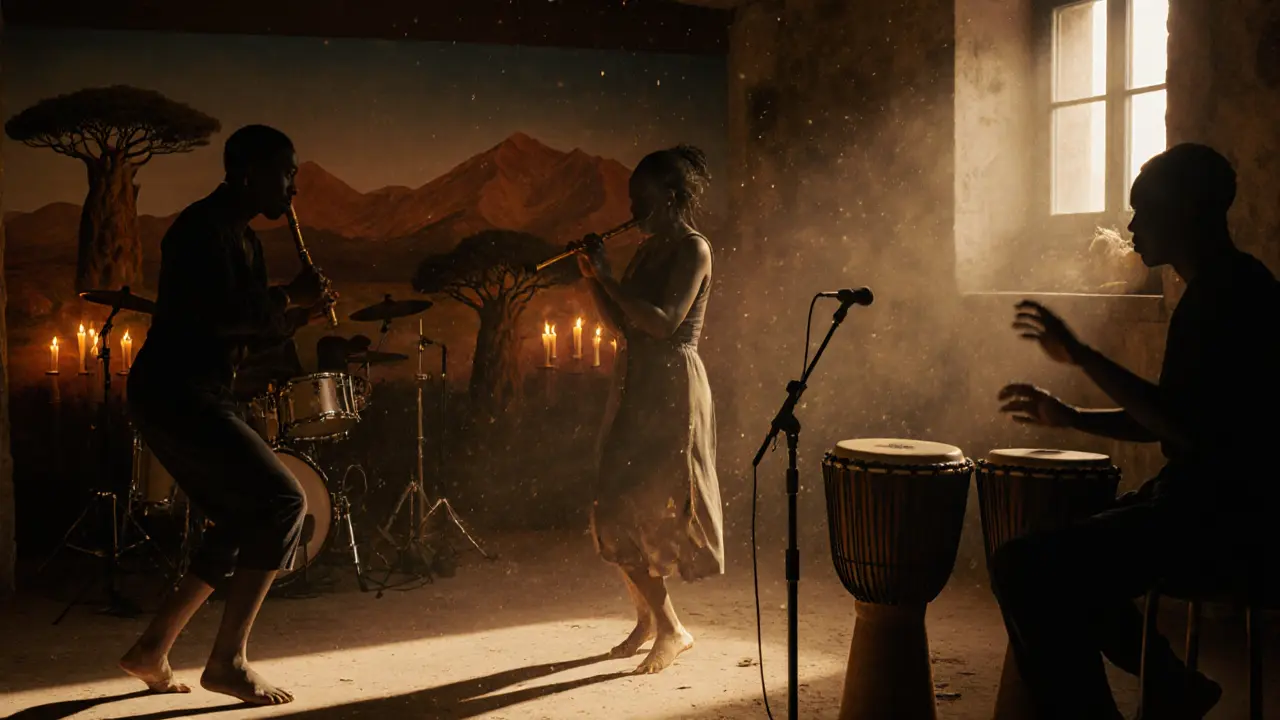
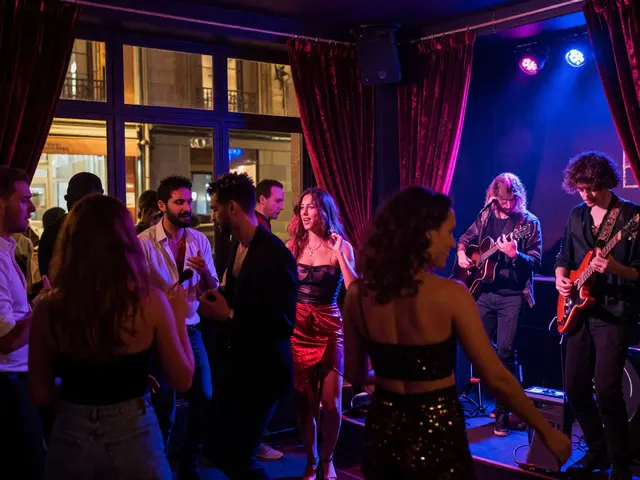

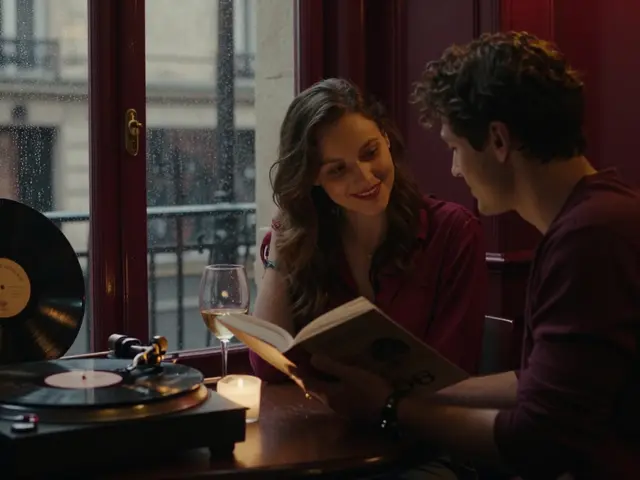
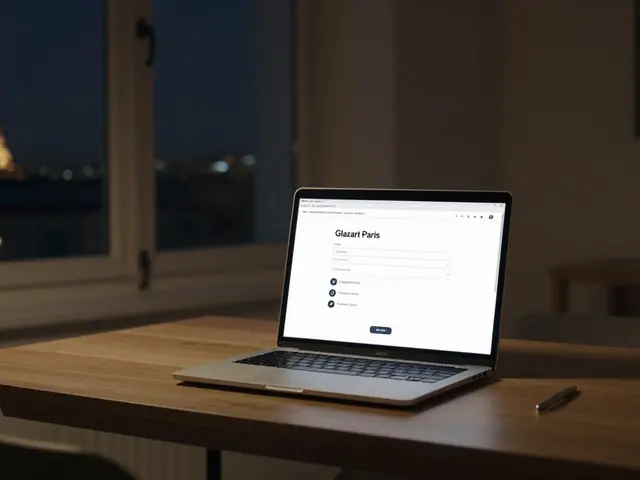
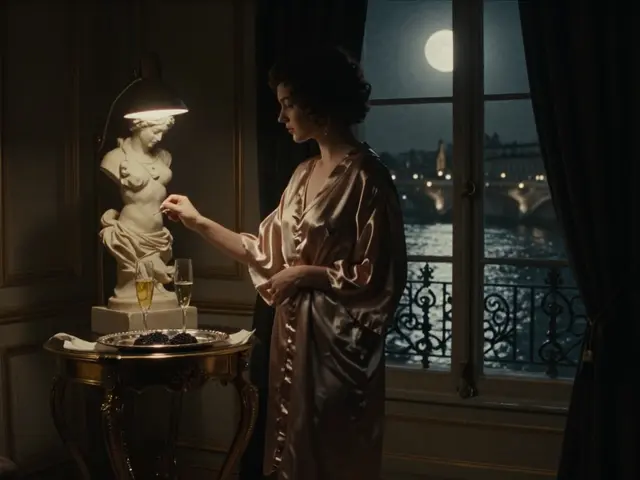
Pachamama Paris sounds like the kind of place that reminds you why you ever left your apartment in the first place. No phones, no alcohol, no pretense-just people moving together like they remember how to breathe. I’ve been to clubs where the music was loud but the soul was silent. This is the opposite. I wish there was something like this in Delhi.
it’s not about the music it’s about the silence between the beats the space between bodies the unspoken agreement that you’re not here to perform you’re here to remember what it feels like to be human without a filter. the eiffel tower doesn’t hum. the croissant doesn’t dance. but this place does. and maybe that’s the revolution.
I read this and immediately thought of my uncle in Kerala who used to play the chenda drum in temple festivals. Same energy. No stage, no spotlight, just people gathering because the rhythm pulled them in. Pachamama feels like that but in the middle of Paris. I love that it’s cash only. No apps. No QR codes. Just hands exchanging money and hearts exchanging stories. And that herbal tea? That’s the secret sauce. No buzz, just presence. I’m booking a flight next month.
no alcohol no phones no dress code sounds like a cult. if you have to tell people not to use their phones then they probably shouldnt be there. also why would you pay 12 euros to sit in a basement with no beer. this is just a hippie fantasy dressed up as culture. real nightlife has drinks and lights and people trying to look good. this sounds like a boring sunday afternoon with extra steps
Adam, you just described every other club in the world. And yet here we are, still lonely. Pachamama isn’t trying to be the loudest. It’s trying to be the most real. If you need a mirror to feel alive, maybe you’re the one who’s lost.